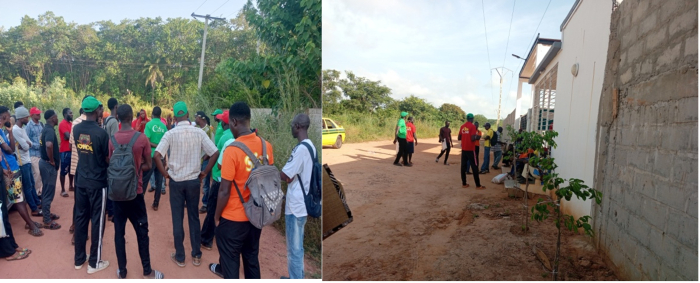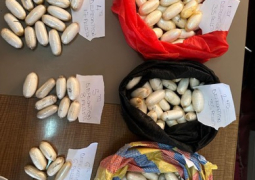
“We are tired of being treated like we don’t matter,” said one protester, who requested anonymity for fear of retaliation. “We work hard every day, yet we go home empty-handed. It’s not just about money, it’s about dignity.”
While the company’s management has remained largely silent, a senior staff member, speaking anonymously, confirmed the delays in salary payments but denied allegations of maltreatment and discrimination, adding: “In fact, I can confirm that the issue of delayed staff payments has already been addressed. We held a meeting with several employees, and it was agreed that, starting this month, salaries will be paid on time.”
“There have been challenges with payroll, yes,” the source admitted. “But claims of abuse and discrimination are unfounded.”
The individual declined to elaborate further and referred our reporter to Borry Darboe, a senior executive member of the company for comments. When contacted for comment, Borry Darboe, declined to speak, stating: “I am not aware of the protest, and I am not going to comment on something I know nothing about. Furthermore, I do not wish to be quoted in your story or have my name featured in it,” he said.
At the gathering, angry protesters were overheard making serious allegations against the company. These ranged from claims of discrimination between Gambian employees and their Indian counterparts, to concerns about staff working without employment letters, job descriptions, or overtime pay.
Protesters also highlighted excessively long working hours, with some employees reportedly working from 7am to 7pm daily, including Sundays.
“The way the company operates is just terrible. We are ready and willing to work, but even when you speak to them, they respond with nonsense,” one frustrated staff member told our reporter. “There’s so much happening at the company that we want the authorities to be aware of,” the staff member added.
Protesters revealed that they had written to the company’s management in Bonto two weeks prior to express their grievances, but claimed no action had been taken. A follow-up letter was also sent, yet they alleged it was ignored.
“No one knows their job description at the company. We are all simply referred to as ‘helpers’,” one employee said. According to the protesters, staff working in the CSD Department, which handles soft drink production, are paid 5,500 dalasis monthly, with 1,000 dalasis deducted each month.
“Every month, our actual take-home pay is 4,500 dalasis. What pains us most is that we are not given pay slips, and we have no way of knowing whether the 1,000 dalasis deducted for social security is actually being paid. We have no evidence, no cards, nothing,” one worker explained.
Staff also complained about the limited time allocated for breakfast and lunch breaks. “Even if you are unwell and need to visit the restroom frequently, the Indian nationals instruct the company’s security to monitor you, and that could lead to salary deductions,” a staff member claimed.
Another employee, speaking anonymously for fear of dismissal, reported that four staff members’ appointment were recently terminated simply for not working on a Sunday. “These staff worked Monday to Saturday, but because they didn’t show up on Sunday, they were all fired,” the source said.
Protesters further alleged that even the company’s cleaners are burdened with tasks beyond their scope. Despite earning just 3,000 dalasis, they are reportedly required to do laundry, mopping, and other duties.
“I can tell you that the cleaners are the ones laundering the Indian nationals’ clothes. They’re even asked to cut grass at the company’s new site nearby. Two cleaners have recently resigned,” one protester stated.
Following a closed-door meeting with senior company staff at the Bonto site, staff representatives of the protesters stated that management had agreed to address some of their concerns.
“Management has agreed to provide us with job descriptions that will clearly define each employee’s role and responsibilities. They’ve given us a timeline extending until March next year, by which the matter will be resolved,” one representative said.
“They have also committed to issuing employment letters effective from March 2026, which will specify each staff member’s employment status and position within the company. Additionally, regarding the issue of delayed salary payments, management has agreed that salaries will now be paid at the end of each month effective the end of November,” the representative added.
The protesters claimed that apart from the operators, other staff members are not permitted to take their phones inside the premises. One protester recounted a distressing incident: “There was a situation at the company where one of our colleagues lost her stepfather. She was called several times, but couldn’t be reached because her phone had been left with the security guard, as per company policy. She only found out about his passing several hours later. It was incredibly sad and unfortunate.”





